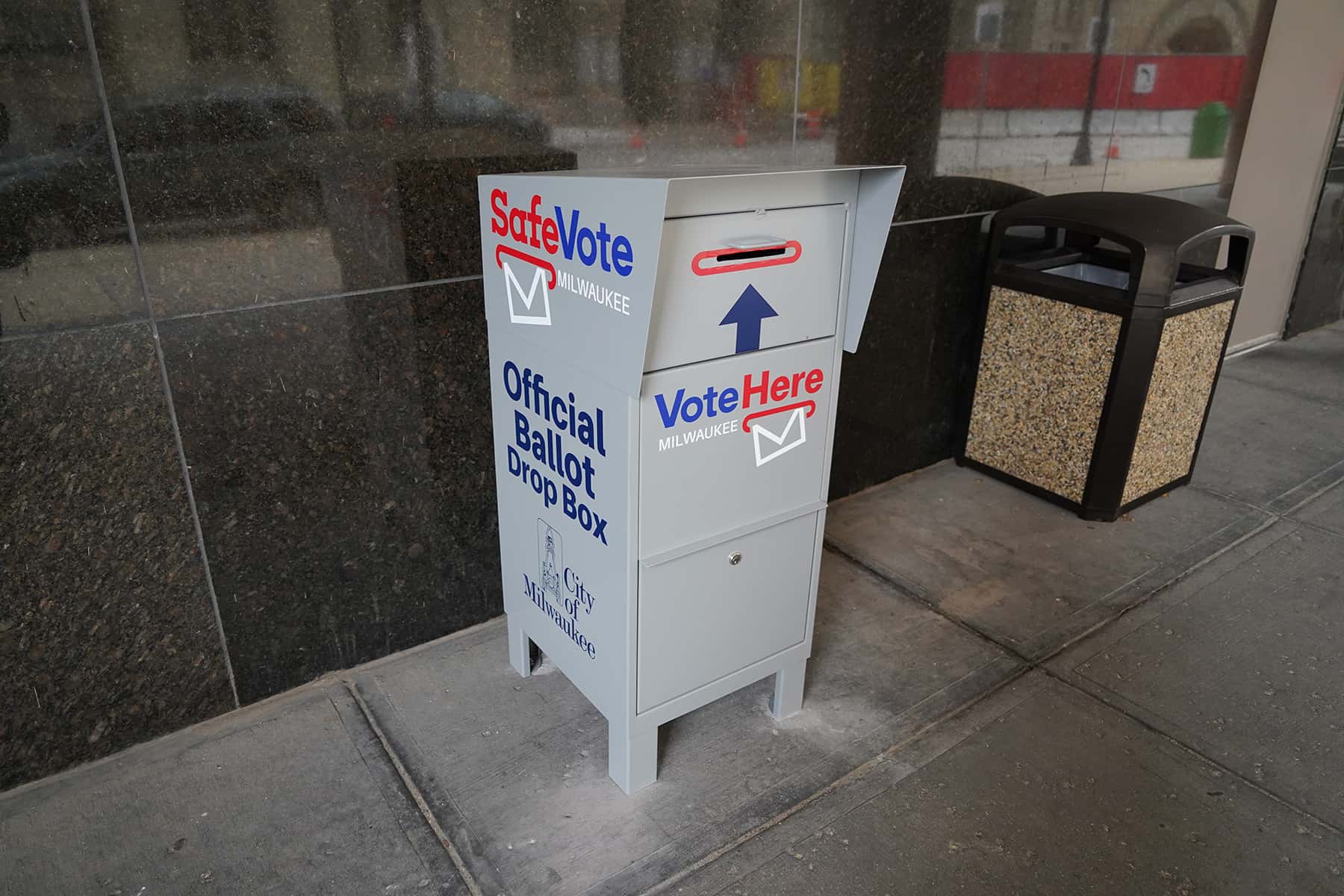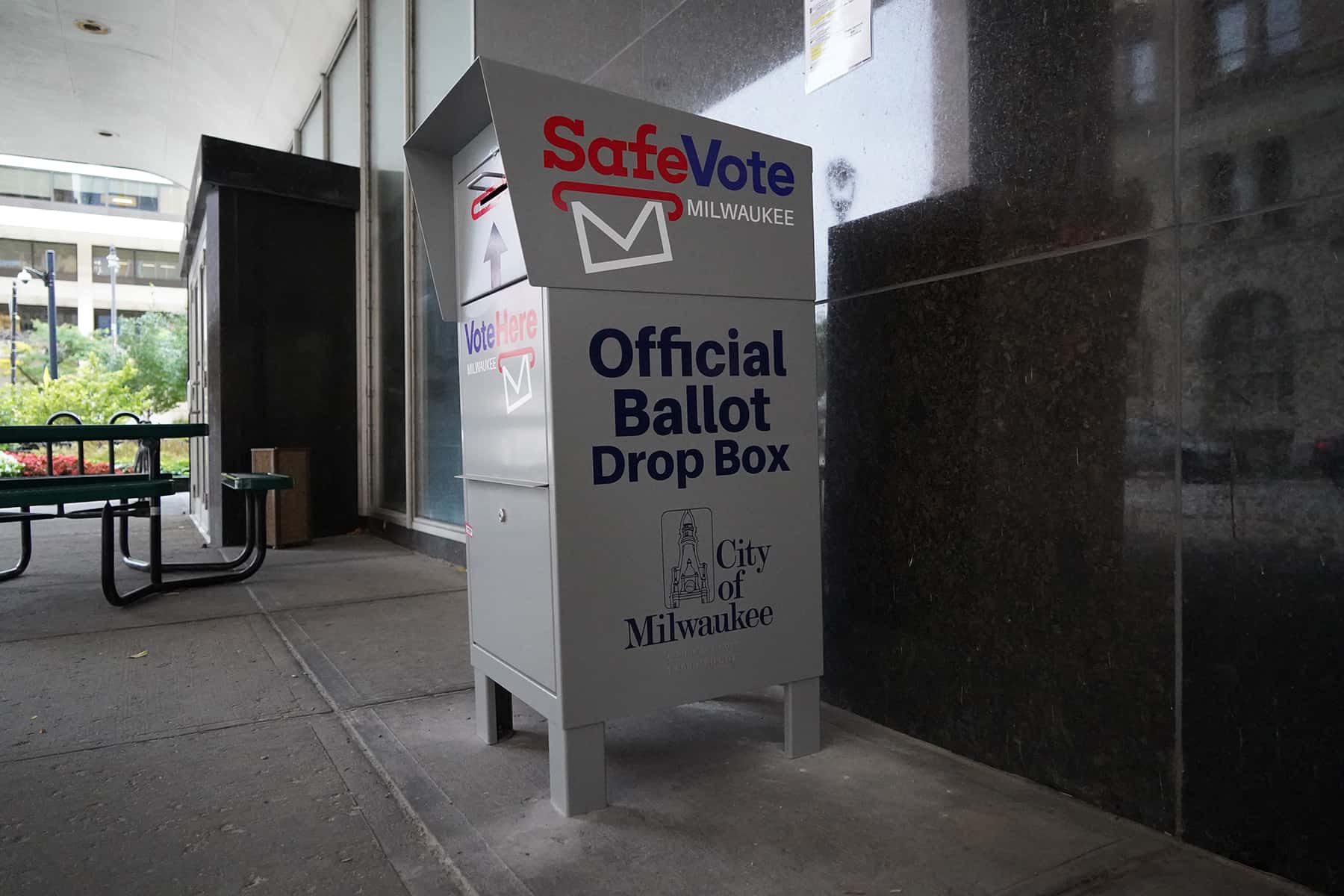
Republicans are determined not to let Democrats level the electoral playing field. While Democrats in the House, where legislation can pass with a simple majority vote, have passed voting rights laws, Democrats in the Senate have to deal with the filibuster, which enables senators in the minority to block legislation unless the Democrats can muster 60 votes.
Republicans are dead set against voting rights laws. Senate Minority Leader Mitch McConnell (R-KY) has called voting reform “a solution in search of a problem,” driven by “coordinated lies about commonsense election laws that various states have passed.” Are the 33 election laws 19 states have passed to restrict the vote really “commonsense election laws?”
Meridith McGraw at Politico reported that America First Policy Institute (AFPI), a think tank of former Trump officials, says the priority for a second Trump administration would be new election laws. The president of AFPI, Brooke Rollins, who was in the Trump White House, said election reform would be top priority. Trump argues, without evidence, that the 2020 election was stolen. But, Rollins said, Trump might not have to push voting restrictions because the states have passed them already.
In 1776, the Founders declared “that all men are created equal, that they are endowed by their Creator with certain unalienable Rights, that among these are Life, Liberty and the pursuit of Happiness. …That to secure these rights, Governments are instituted among Men, deriving their just powers from the consent of the governed…”
There have always been fights over who should have a say in our society, and until 1870, most voters in the United States were White men. After the Civil War, in 1870, the Republicans then in charge of Congress expanded the pool of voters to enfranchise Black men attacked by White gangs and undermined by White legislators.
In that year, the Fifteenth Amendment to the Constitution declared that “the right of citizens of the United States to vote shall not be denied or abridged by the United States or by any State on account of race, color, or previous condition of servitude.” That amendment also gave Congress power to enforce that amendment.
Almost immediately, White southerners determined to prevent their Black neighbors from affecting society through their votes began to keep Black Americans from the polls. By the early 1960s, fewer than 5% of eligible Black voters were registered in Mississippi, and when organizers tried to help them enforce their right to vote, White gangs and government officials harassed them, occasionally to the point of murder.
Appalled at the violence playing out on the streets and then again on the evening news, lawmakers in 1965 passed the Voting Rights Act. It required that states with a history of discrimination get pre-approval from the Department of Justice to change state election laws. The measure passed on a bipartisan basis.
But the impulse to expand voting rights in America would face a backlash in 1986, when Reagan Republicans realized they were in danger of losing control of the government and thus losing the 1986 tax cuts. Republicans began to talk of cutting down black voting under a “ballot integrity” initiative in 1986, and new voter restrictions in Florida paid off in the 2000 election, when Republican George W. Bush won by a handful of votes there after many more votes had been suppressed.
When Democrats tried to shore up voting with an expansion of voter registration at certain state offices in 1993, with the so-called Motor Voter Law, Republicans exploded. A New York Times writer said Republicans saw the measures “as special efforts to enroll core Democratic constituencies in welfare and jobless-benefits offices.” As Democrats began to focus on expanding voting rights, Republicans focused on restricting the vote.
By 1994, losing Republican candidates were charging that Democrats won elections with “voter fraud.” In 1996, House and Senate Republicans each launched yearlong investigations into what they insisted were problematic elections, helping to convince Americans that voter fraud was a serious issue and that Democrats were winning elections thanks to illegal, usually immigrant, voters.
When voters nonetheless reelected Democratic president Bill Clinton in 1996, Republicans did their best to undermine his presidency — and eventually impeached him — but the elevation of biracial Democrat Barack Obama to the White House in 2008 prompted a new level of attacks on the electoral system. The Supreme Court in the 2010 Citizens United decision permitted a flood of corporate money to flow into the electoral system, and then, in the 2013 Shelby v. Holder decision, it gutted the 1965 Voting Rights Act.
With Justice Department pre-clearance out of the way, states promptly began to pass discriminatory election laws. In 2021, in Brnovich v. Democratic National Committee, the Supreme Court said such laws were not prohibited, thus greenlighting the new election laws passed by Republican-dominated states after voters choose Democrat Joe Biden in 2020.
And so, here we are. Republicans are trying to regain control of the government by making sure their opponents can’t vote, while Democrats are trying to level a badly tilted playing field. If the Democrats do not succeed in passing a voting rights law, we can expect America to become a one-party state that, at best, will look much like the American South did between 1876 and 1964. Our nation will no longer be a democracy.
There are currently three voting measures before Congress. The For the People Act is a sweeping measure that cuts back on voter suppression, ends partisan gerrymandering, curbs dark money in politics, and combats corruption. The House of Representatives passed this measure in early March 2021 and sent it to the Senate, where Republicans blocked it using a filibuster.
The John Lewis Voting Rights Advancement Act would restore the protections of the 1965 Voting Rights Act that the Supreme Court gutted in the 2013 Shelby County v. Holder decision. The House of Representatives passed this measure in late August 2021 and sent it to the Senate, where it sits under threat of a filibuster.
In the Senate, Joe Manchin (D-WV) expressed misgivings about the voting measures and vowed to hammer out a voting rights bill that could attract the votes of ten Republicans and thus break a filibuster. He and a number of Democratic colleagues announced the Freedom to Vote Act in mid-September 2021. If there are ten Republicans to support the measure, we have not yet seen them. The Senate will vote on the Freedom to Vote Act on October 20.
Brеndаn Smіаlоwskі
Letters from an Аmerican is a daily email newsletter written by Heather Cox Richardson, about the history behind today’s politics














